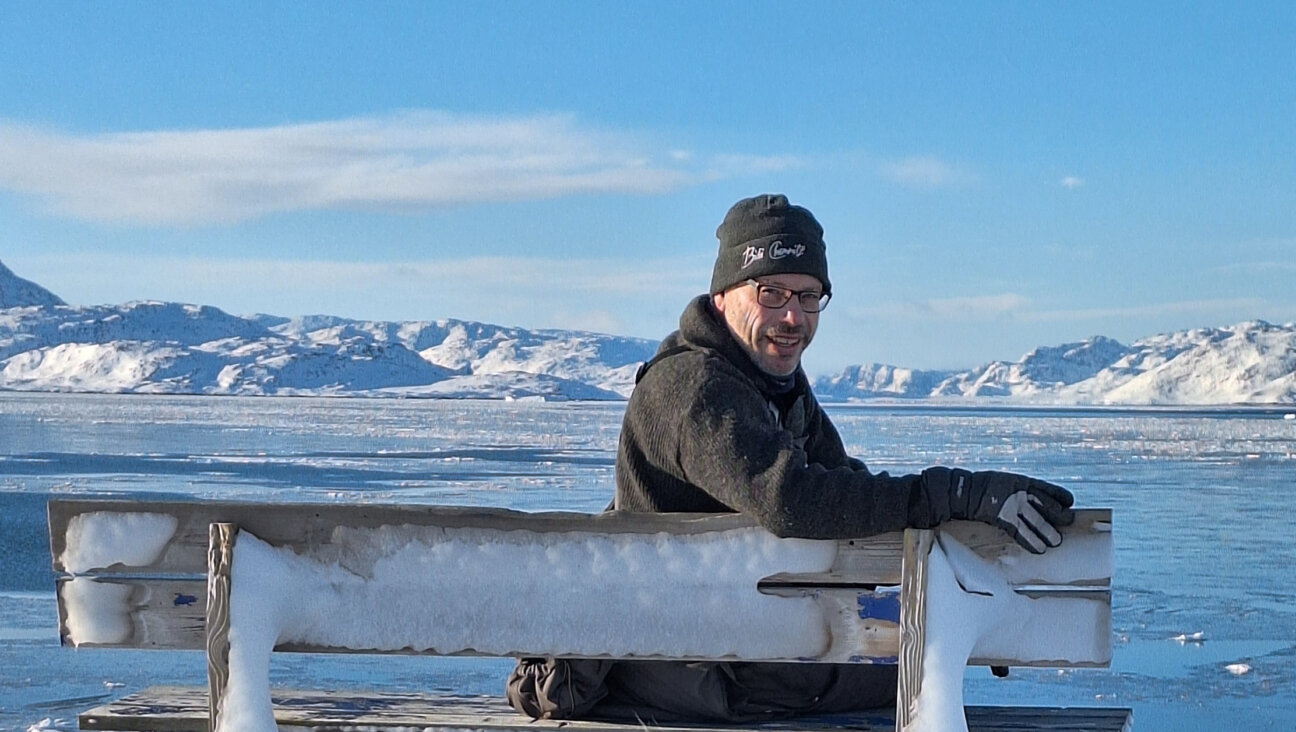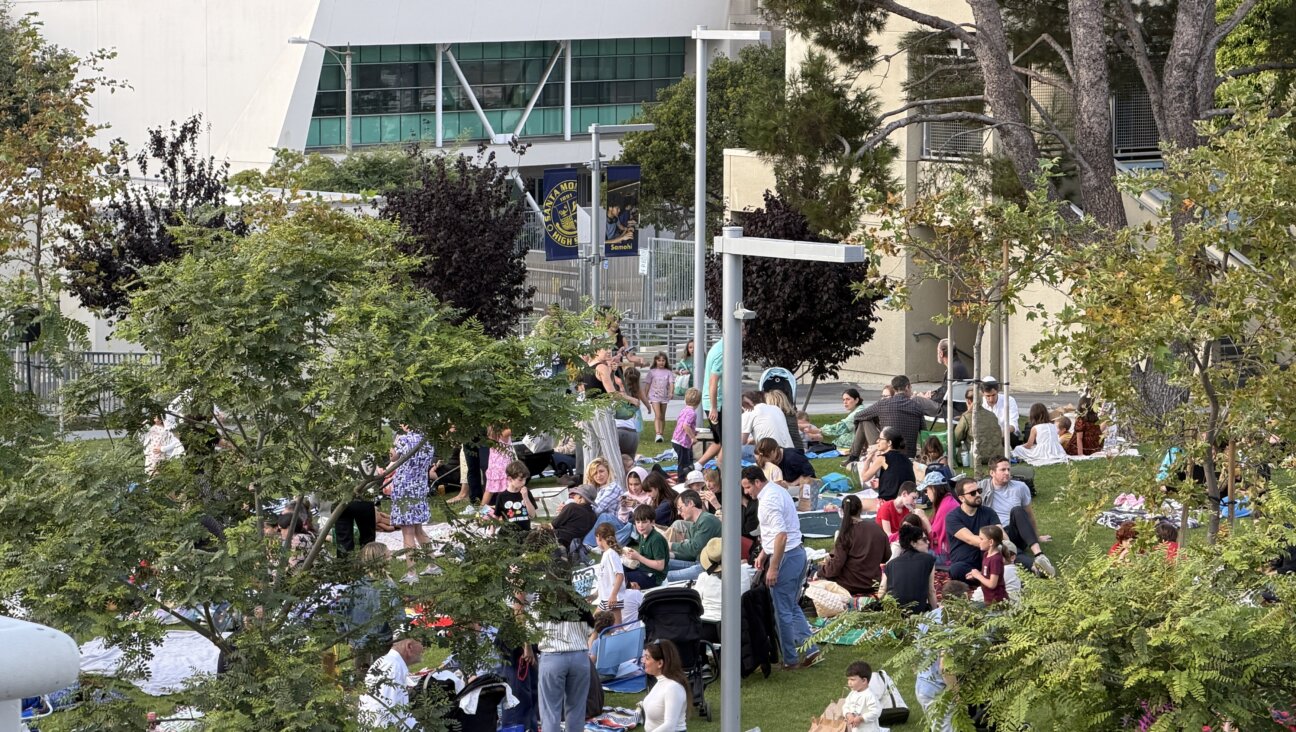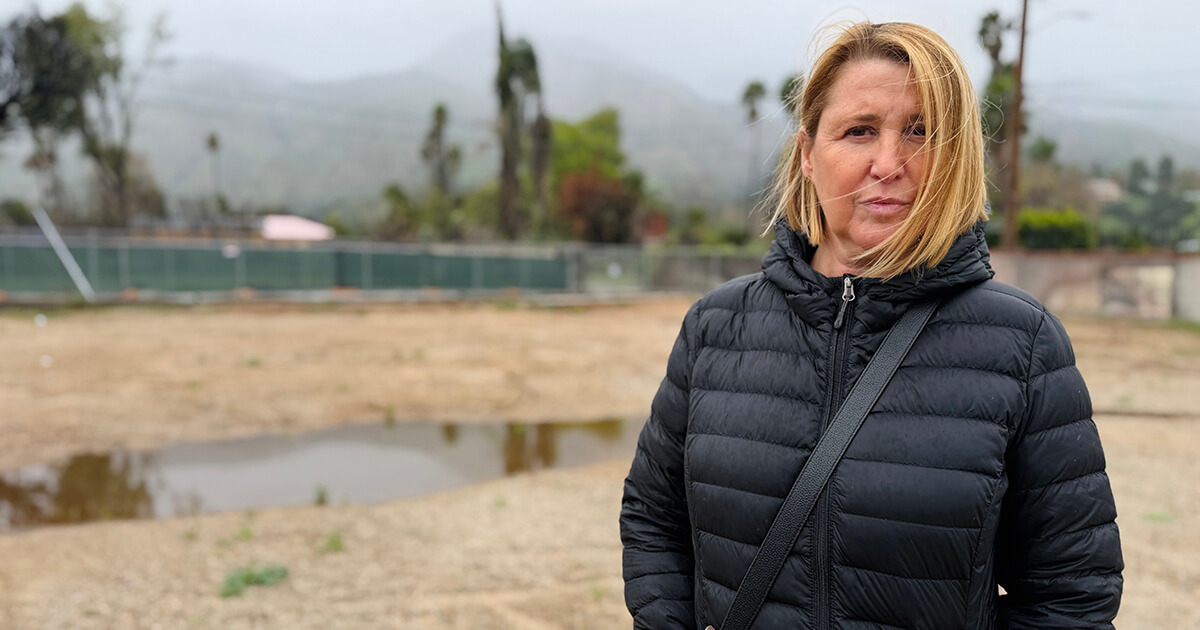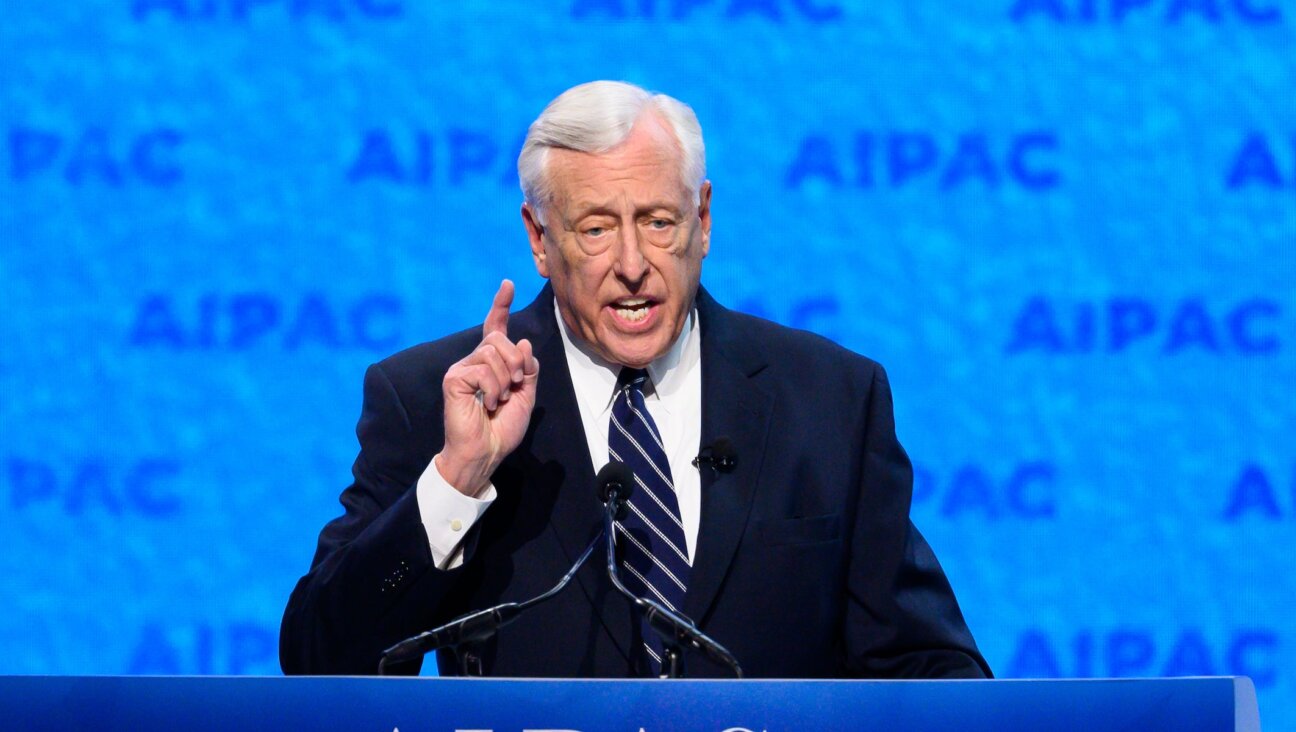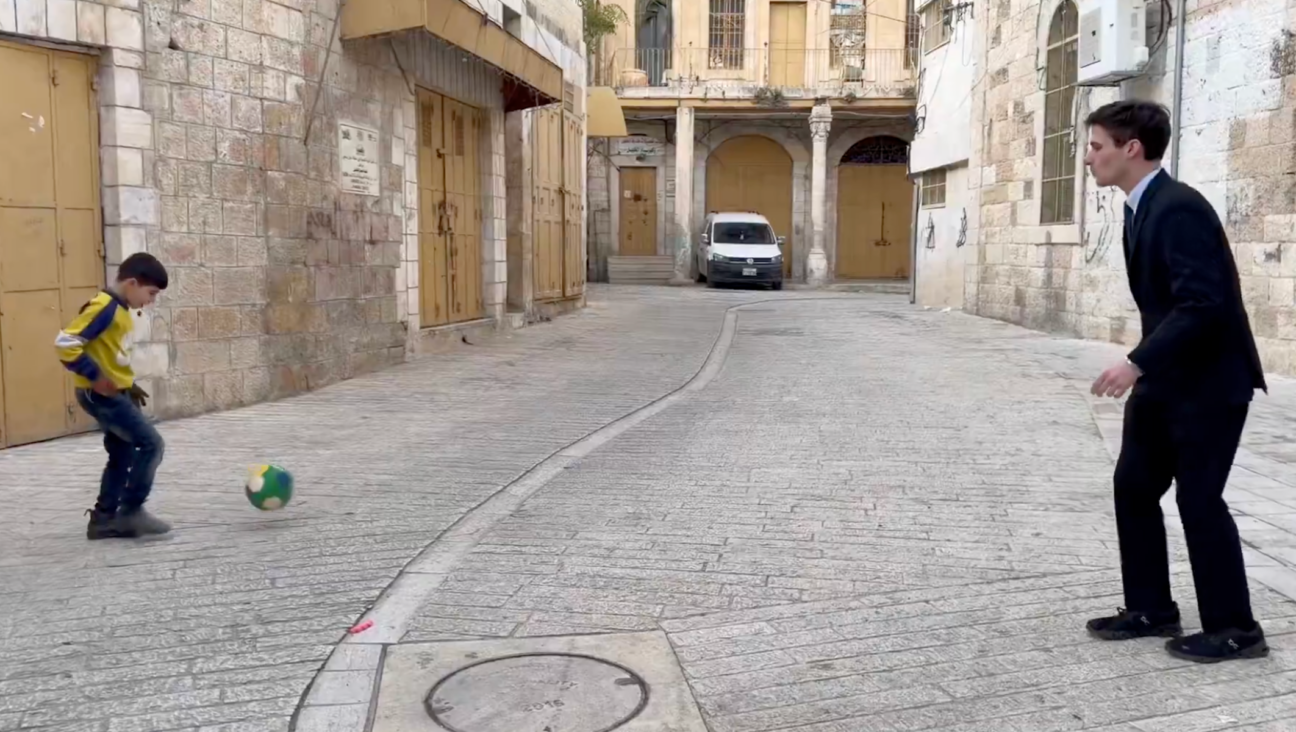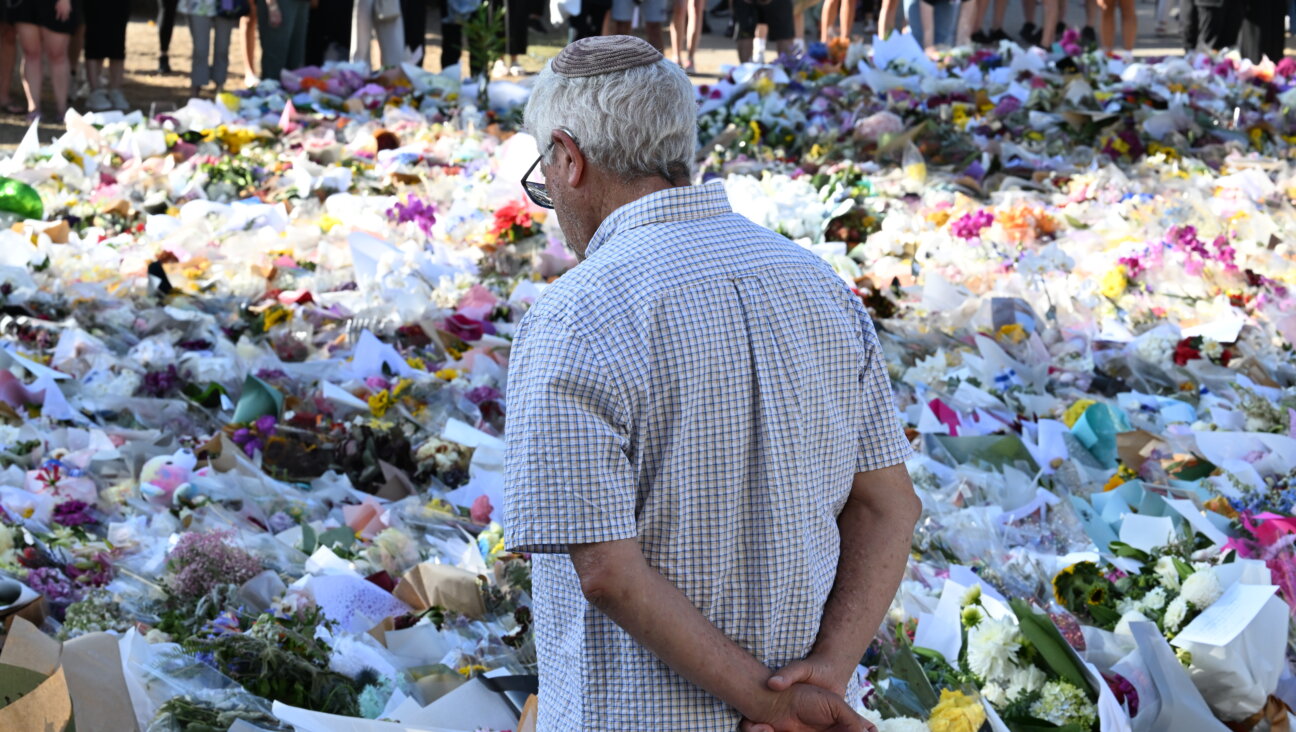Freed From Shackles of the Past, Europe Forges a Unified Future
This weekend, much of Central and Eastern Europe will be celebrating as my country of Latvia and nine other new member-states officially join the European Union. Last month, five of those states — Estonia, Latvia, Lithuania, Slovakia and Slovenia — also joined the North Atlantic Treaty Organization.
For many in Central and Eastern Europe, membership in the E.U. and NATO marks the definitive end to World War II and the division of the European continent. For Jews in the region and beyond, the political paradigm shift offers an opportunity for unprecedented cooperation. On the way to being released from the shackles of the past, people in Latvia and others in the region have the chance, for the first time in several generations, to be truly free, prosperous and secure — a poor breeding ground for antisemitism.
Accession to the E.U. and NATO, itself reflecting a certain degree of liberation, did not come overnight. Latvia and the other new member-states have done a lot of homework over the last decade: curbing corruption, strengthening independent judiciaries, reforming police and liberalizing policy toward minorities. While there is plenty of work left to do, progress is undeniable. All new E.U. member-states met the political criteria for membership, as defined in Copenhagen by the European Council in 1993: “stability of institutions guaranteeing democracy, the rule of law, human rights and respect for and protection of minorities.”
muiznieks Page 1
Membership in the elite club of E.U. and NATO nations means that the countries of Central and Eastern Europe are in the process of breaking a centuries-old pattern of backwardness, accentuated by 50 years of communist tyranny and the suppression of all manner of minorities. For the first time, the countries and peoples of the region will no longer be doormats of the Great Powers, satellites ruled by dependent elites or “victims of history,” but important actors shaping the policy of one of the richest trading blocs in the world. This new Europe seeks to develop its poorer regions, give voice to smaller members and maintain a common standard of democratic development.
Central and Eastern Europe has long been home to weak states. The elites of these states, particularly under communist rule, often fostered official antisemitism in an attempt to garner popular support. E.U. membership strengthens the insitutions of these traditionally weak states and restricts the opportunities for antisemitic politics to flourish.
The strong E.U. response to right-wing populist Jörg Haider’s rise in Austria four years ago is but one example of the steadying power of Brussels. To meet the challenge posed by Haider and his ilk, the E.U. adopted strong new anti-discrimination provisions, while funding an information and education effort throughout the region to combat intolerance and discrimination in all their forms, including antisemitism.
The unification of the continent should inject dynamism into many European debates. New member-states will not only be learning from their Western counterparts, but imparting some lessons as well. Central and Eastern Europe is engaged in an ongoing process of coming to terms with its past, including the interwar authoritarian period, the Nazi period and the Communist period — a daunting task, but the horrors of the last century demand no less.
To undo the consequences of ideologized social science, educators in the region have made a major push to introduce civics and human rights education into school curricula and to modernize history texts and teaching methods. Hundreds of new history textbooks are being produced. Official historical commissions in the three Baltic states are raising public awareness about the Holocaust, as well as about the crimes of the Communists and their local collaborators.
While Central and Eastern European politicians, academics and activists occasionally view Western attitudes toward the former communist regimes (and contemporary Russia) as naive, Westerners are suspicious of any attempt to overdraw parallels between the nightmares of Nazism and Stalinism. A difference in perspectives, however, need not be a cause of friction between “Old Europe” and “New Europe.” As long as the debates do not lead to revisionism or the trivialization of the Holocaust, they can serve the purpose of strengthening democracy.
Western Europe can learn much from the efforts to combat bigotry undertaken by civil society in Central and Eastern Europe. The region boasts a robust network of human rights non-governmental organizations, including the “Helsinki committees” of the International Helsinki Federation for Human Rights, the European Roma Rights Center and the various progressive organizations created by George Soros’ Open Society Institute.
Already sworn enemies of the extreme right, civic activists from the region will invariably sensitize their Western colleagues to the dangers of prejudice and antisemitism being promulgated by the far left. Such was the case at the 2001 World Conference against Racism in Durban, where Eastern European NGOs were quick to denounce the anti-Israel and antisemitic outbursts of their militant counterparts from the developing world. The combined efforts of NGOs and educators appear already to have had some impact in the region: a recent Eurobarometer study suggests that youth in the new E.U. member-states are considerably less susceptible to xenophobia than youth in the original member-states.
The recent wave of antisemitic speech and behavior in Western Europe points to important areas of work for new E.U. member-states. According to research commissioned by the Vienna-based European Monitoring Centre against Racism and Xenophobia, in some Western European countries many of the perpetrators of recent hate crimes against Jews are immigrants from the Middle East or North Africa. It turns out that far too little attention was paid to socializing new arrivals to the values of the host country, to preventing the emergence of ghettoes of extremism among new immigrants, and to insulating domestic politics from the vagaries of the Middle East conflict.
The new E.U. member-states must learn from the failures of their Western counterparts and take timely action to prevent the importation of intolerance. Appropriately targeted programs of education, information and social work are an urgent priority, as all the countries of Central and Eastern Europe are shifting away from being sources of emigration toward being magnets for immigration.
While the unification of Europe provides promising new avenues for mutual learning, it also creates new opportunities for European Jewry — as well as Jews around the world — to help those among their new fellow Europeans who face discrimination. Antisemites commonly harbor prejudices against other groups, and in Central and Eastern Europe, the most common target for hate is Roma. Jewish communities, with their strong organizational capacity, could lend a special hand to Roma, who face high levels of social exclusion, poverty, illiteracy and discrimination.
Already, the two communities have found common cause. When a Latvian Roma activist recently turned to my office seeking advice on creating a memorial to Roma victims of Nazism, I introduced him to a Jewish activist who spearheaded the local effort to document the Holocaust and commemorate victims. Other examples abound.
Such intercommunal cooperation is, in a sense, the essence of the European unification we celebrate this weekend: New alliances are forging a better common future while ensuring that we never forget our horrific common past.
